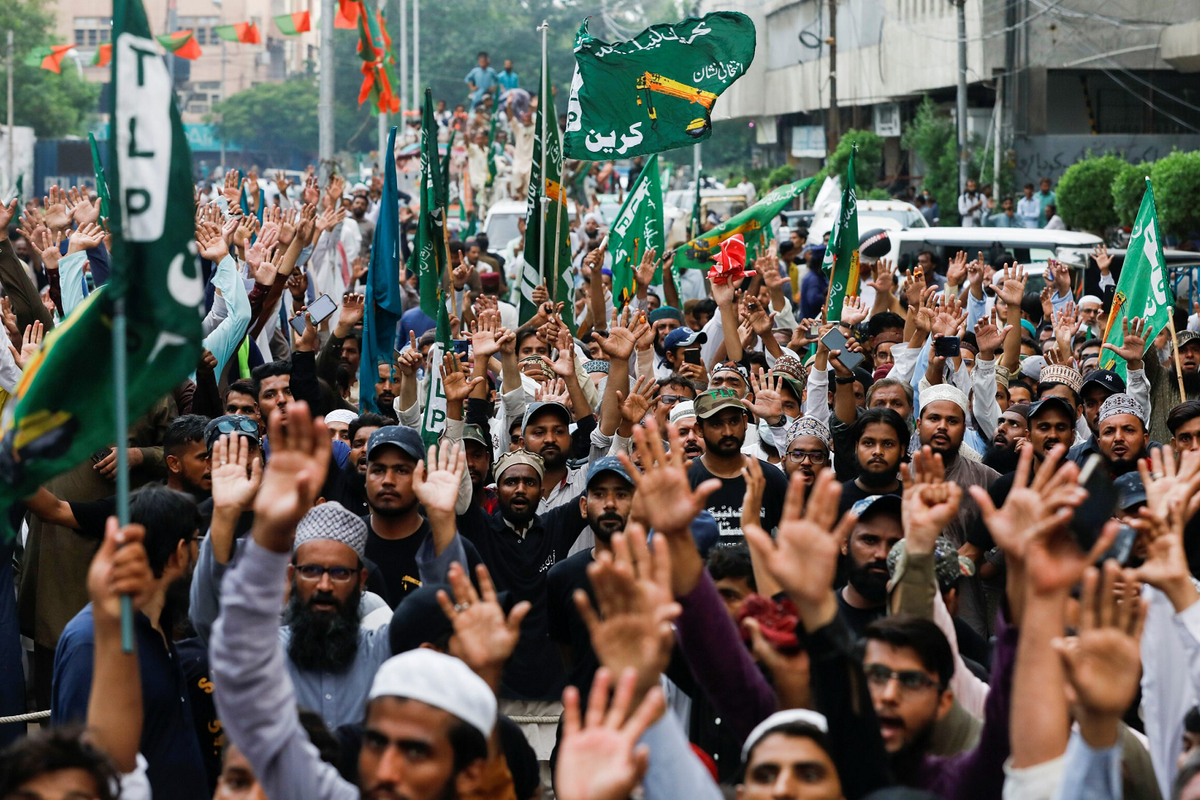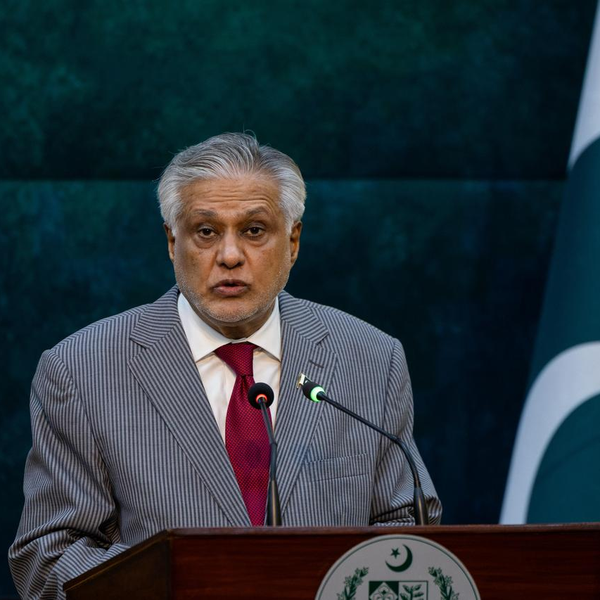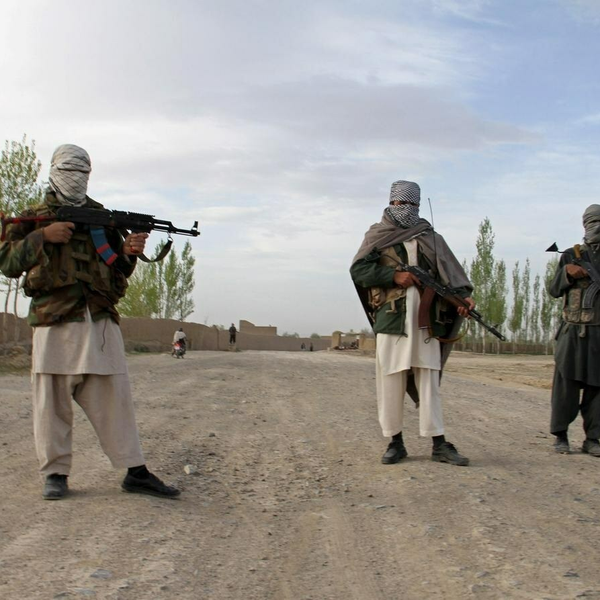Internal schisms shake Pakistan’s radical religious party amid govt crackdown
Several key TLP leaders from Lahore and central Punjab have quit the party, pledging loyalty to the state and rejecting its violent, anti-state stance

Usama Manj
Producer, Correspondent
Usama Manj is an experienced multimedia journalist with over 8 years in the industry. He began his career at Express News before moving on to Indus News as news producer and then worked for Aik News as a sports producer and anchor.

Pakistan banned the TLP after its Islamabad march led to violent clashes with police.
Reuters/File
In an unprecedented turn of events, the Tehreek-i-Labbaik Pakistan (TLP), once a formidable force in Pakistan’s radical religious politics, faces a deepening internal crisis that threatens to erode its influence and stability.
Several key leaders, including high-profile ticket holders from Lahore and central Punjab, have publicly distanced themselves from the party, declaring their allegiance to the state and condemning the group's increasingly anti-state and violent agenda.
This growing rift within the ranks of TLP is seen not only as a blow to the organization’s credibility but also as a critical juncture that may redefine the future of radical religious politics in Pakistan.
TLP leadership split over violent tactics
At a press conference in Lahore this week, Barrister Usman Khizer Mangat, flanked by a number of prominent former TLP members, delivered a stinging critique of the party’s radical shift.
“Politics must operate within the boundaries of the state, not against it,” Mangat declared, underscoring his disillusionment with the TLP’s trajectory. He criticized the group’s turn toward violence and unconstitutional actions, saying that its protests, which often spiraled into lawlessness, had crossed the line of acceptable political dissent.
Mangat’s comments came at a time when Pakistan is already grappling with complex security issues on both its eastern and western borders.
His warning resonated strongly as he urged Pakistan’s political landscape to reject violence as a means of achieving political ends. “Other political parties engage in lawful protests, within constitutional limits. But TLP has repeatedly ignored the law,” Mangat added, signaling his break from a group that had increasingly become a symbol of extremism rather than a legitimate political force.
Announcing his resignation from the TLP, Mangat made it clear that his loyalty lay with Pakistan's national interests. “If my politics threatens the stability of my country, I would rather step away from politics entirely,” he said, underscoring the profound impact these internal fractures could have on the future of the party. This marks a pivotal moment, not just for Mangat, but for the party as a whole.
A ripple effect: South Punjab leaders follow suit
Mangat's departure follows similar moves from the TLP's South Punjab wing, where key figures, including Muhammad Hussain Babar and Rao Arif Sajjad, also severed ties with the organization.
Sajjad, who contested the 2024 provincial elections from PP-209 (Khanewal-V), similarly cited the party’s failure to serve Pakistan’s national interest as the driving factor behind his decision.
“The Gaza Solidarity March was an ill-conceived protest that only caused chaos within Pakistan, while Palestinians themselves were accepting ceasefire agreements,” said Sajjad, highlighting the disconnection between TLP’s actions and the realpolitik of international diplomacy.
This latest wave of defections points to a larger unraveling of TLP’s once solid base. The move comes after Pakistan’s federal government imposed a ban on the group under the Anti-Terrorism Act (ATA), following violent clashes during a series of protests in early October.
Despite its intention to voice support for the Palestinian cause, the TLP's actions led to a breakdown of law and order, resulting in casualties and mass unrest.
The state strikes back
The federal cabinet’s decision to ban the group followed the recommendation of the Punjab government, which argued that TLP’s violent actions threatened Pakistan’s stability. The crackdown was further intensified by the party’s defiant stance, which included a march towards Islamabad, culminating in clashes with law enforcement.
This internal fracture within TLP, particularly the resignation of key leaders such as Mangat and Sajjad, underscores the growing divide within Pakistan’s radical religious groups, further weakening TLP's ability to mobilize its base.
While some members remain committed to the party’s radical ideology, the loss of these influential figures sends a strong signal that even within Pakistan's most extreme factions, the call for law and order and national stability may soon outweigh the push for radical political agendas.
As TLP grapples with its disintegrating leadership, the implications for Pakistan’s political future are profound. These divisions may not only signal the decline of TLP as a political force but could also alter the dynamics of radical religious movements in Pakistan, potentially opening the door for more mainstream religious and political parties to fill the void left by the group’s fracturing leadership.
The continued internal strife, if unresolved, could hasten TLP’s political irrelevance, changing the religious-political landscape of the country in the process.







Comments
See what people are discussing